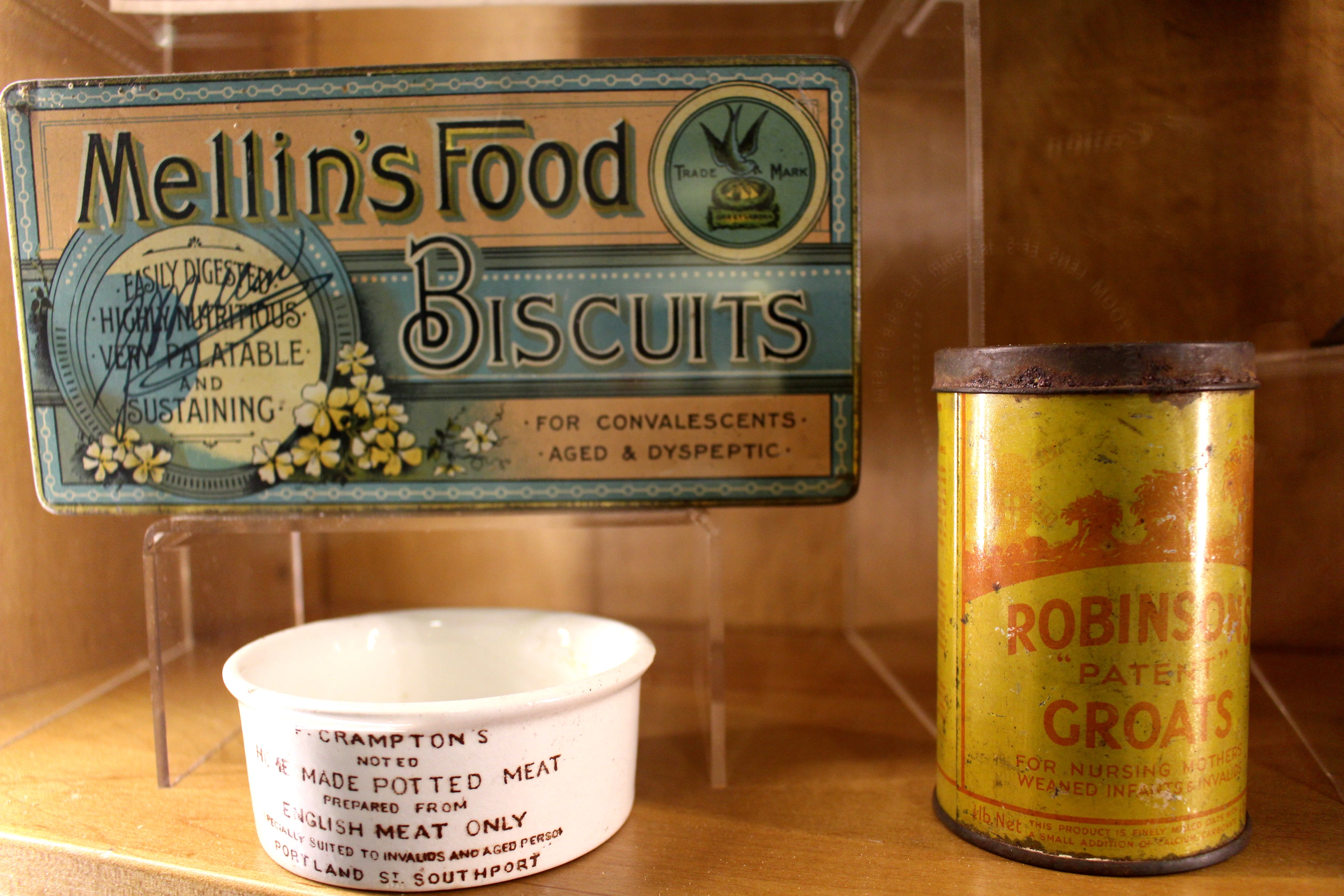Joyner exhibit showcases trappings of early healthcare
Joyner Library is hosting the traveling exhibit “The Sick Room: Invalid Feeders and Bedside Necessities” in the Verona Joyner Langford North Carolina Collection on the third floor of the library. The exhibit, open through the month of May, showcases a variety of items — both beautiful and useful — that helped ease invalids back to health during the Victorian Period.
Caring for a sick family member was a common part of life, and any bedroom could become the “sick room” where a convalescing patient would rest undisturbed from the difficulties of life.
“The exhibit gives us a better understanding of what life was like taking care of sick family members during the late 19th century,” said Anne Anderson, exhibit curator for the Country Doctor Museum. “This responsibility usually fell to the woman of the household, and much of her time might have been spent using the types of objects featured in the exhibit.
“This concept still connects to us today where an illness can have a huge impact on family life.”

On loan from the Country Doctor Museum in Bailey, North Carolina, the exhibit includes feeders, baby rattles, bedpans, and an invalid chair.
The exhibit also offers many pieces from the private collection of Brenda Rewalt of Bolivia, North Carolina, a retired nurse who has collected more than 700 feeders and related items, some dating back to the 1700s.
“Brenda Rewalt’s collection of invalid feeders is one of the best in the country, and the Country Doctor Museum is very fortunate to include some of her beautiful pieces in this exhibit,” said Anderson. “Her knowledge about the objects, both as a collector and nurse, helped inform the exhibit’s interpretation of life in the sick room.”
On April 6 from 1-3 p.m. in the first floor lobby of Joyner Library, Anderson will offer students an opportunity to participate in a related hands-on activity. Students will grind up medicinal herbs such as eucalyptus, rosemary and peppermint to make medicinal herb sachets, while Anderson and other Joyner Special Collections staff speak on how these herbs were used as home remedies, particularly in sick rooms.
 Activities will continue on the third floor, and students are also encouraged to visit the exhibit and use the iPad kiosk to vote on their favorite exhibit item. Results will be posted to Joyner Library’s social media platforms.
Activities will continue on the third floor, and students are also encouraged to visit the exhibit and use the iPad kiosk to vote on their favorite exhibit item. Results will be posted to Joyner Library’s social media platforms.“This is our first exhibit installation at Joyner Library and we are very grateful for the opportunity to share our passion for medical history with a new audience,” said Anderson.
For additional information, please contact the Country Doctor Museum at 252-235-4165 or email Anne Anderson, andersonan@ecu.edu.
-by Kelly Dilda, Joyner Library
